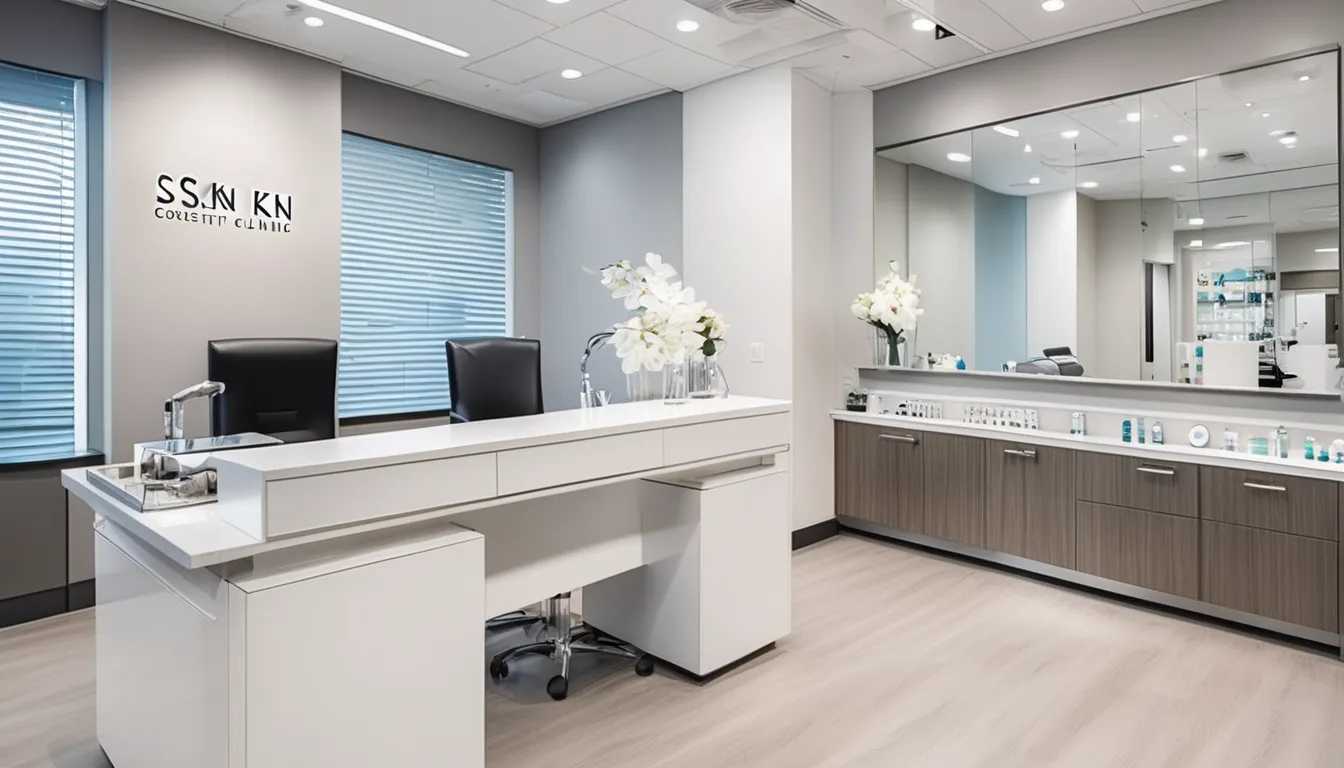If you’re struggling with acne-prone skin, you’re not alone. Millions of people deal with the frustration and self-consciousness that come with breakouts. Fortunately, there are numerous treatments available to help you achieve clear and confident skin. You’ve probably tried over-the-counter products like benzoyl peroxide and salicylic acid, but what if those aren’t enough? That’s where prescription medications and professional skin care procedures come in. But before we explore those options, it’s essential to understand the root causes of your acne and the best course of treatment for your specific skin type – and that’s exactly what we’ll be discussing next.
Over-the-Counter Acne Treatments
When dealing with acne-prone skin, you likely turn to over-the-counter (OTC) treatments first. These medications are widely available and often affordable, making them a popular choice for managing mild to moderate acne.
OTC treatments typically contain active ingredients such as benzoyl peroxide, salicylic acid, or sulfur, which help to kill bacteria, reduce inflammation, and prevent clogged pores.
Benzoyl peroxide is a common ingredient in OTC acne treatments, as it effectively kills bacteria and reduces inflammation. You can find benzoyl peroxide in concentrations ranging from 2.5% to 10%.
Salicylic acid, on the other hand, helps to exfoliate the skin and unclog pores. It’s often found in concentrations of 0.5% to 3%.
Sulfur-based treatments are also available, but they can have a strong odor and may not be as effective as other options.
When using OTC acne treatments, it’s essential to follow the product instructions carefully and start with a lower concentration to avoid irritating your skin.
Be patient, as it may take some time to see results.
If your symptoms persist or worsen, consider consulting a dermatologist for further guidance.
Prescription Medications for Acne
If over-the-counter treatments don’t cut it for you, it’s time to step up your acne-fighting game with prescription medications.
Your dermatologist will help you decide which prescription medication is right for you based on the severity of your acne and your skin type. Topical retinoids, derived from vitamin A, are commonly prescribed to prevent clogged pores and reduce inflammation.
Antibiotics, such as doxycycline or minocycline, can be taken orally or applied topically to kill bacteria that cause acne. For women, hormonal treatments like spironolactone or birth control pills may be prescribed to regulate hormonal imbalances that contribute to acne.
Isotretinoin, a powerful oral retinoid, is typically reserved for severe cases of acne that haven’t responded to other treatments.
It’s essential to follow your dermatologist’s instructions carefully when using prescription medications for acne, as they can have side effects and interact with other medications. By working with your dermatologist, you can find a prescription medication that effectively clears up your acne and helps you achieve the clear, confident skin you’ve been looking for.
Professional Skin Care Procedures
Your dermatologist may recommend professional skin care procedures to complement your acne treatment plan.
These procedures can help to unclog pores, reduce inflammation, and prevent scarring. They can also be used in combination with prescription medications to enhance their effectiveness.
Some professional skin care procedures can be performed in a dermatologist’s office, while others may require a visit to a medical spa or laser clinic.
It’s essential to consult with a dermatologist to determine the best course of treatment for your acne-prone skin.
Here are three professional skin care procedures that your dermatologist may recommend:
- Blue Light Therapy: A non-invasive procedure that uses blue light to kill bacteria that cause acne.
- Chemical Peels: A procedure that uses a solution to remove dead skin cells and unclog pores.
- Microdermabrasion: A non-invasive exfoliating procedure that helps to remove dead skin cells and improve skin texture.
These procedures can help to improve the appearance of your skin and reduce acne symptoms.
Natural Remedies for Acne
Natural remedies can be a great addition to your acne treatment plan.
When used in conjunction with other treatments, these remedies can help reduce inflammation, prevent breakouts, and promote healing.
You can start by incorporating tea tree oil into your skincare routine.
This essential oil has antibacterial properties that help combat acne-causing bacteria.
Mix a few drops of tea tree oil with a carrier oil like coconut or olive oil and apply it to the affected area.
Aloe vera is another natural remedy that can help soothe and calm acne-prone skin.
Its anti-inflammatory properties can reduce redness and swelling, while its moisturizing properties can help hydrate the skin.
You can apply aloe vera gel directly to the affected area or use it as a face mask.
You can also try using honey, which has antibacterial properties that can help prevent breakouts.
Apply a thin layer of raw honey to the affected area and leave it on for 10-15 minutes before rinsing off with warm water.
Advanced Acne Treatment Options
How effective are your current acne treatments? If you’re still struggling with persistent breakouts, it may be time to consider advanced acne treatment options.
These treatments can provide more targeted and effective solutions for acne-prone skin.
You’ve likely tried over-the-counter treatments and natural remedies, but advanced options can offer a more significant impact.
Here are three advanced acne treatment options to consider:
- Blue Light Therapy: This non-invasive treatment uses blue light to kill the bacteria that cause acne. It’s often used in combination with other treatments for optimal results.
- Microdermabrasion and Chemical Peels: These exfoliating treatments can help remove dead skin cells and unclog pores, reducing the appearance of acne scars and hyperpigmentation.
- Hormonal Treatments: If your acne is caused by hormonal imbalances, your doctor may prescribe hormonal treatments such as birth control pills or spironolactone to help regulate your hormones and reduce acne.
These advanced treatments can be more effective than traditional methods, but it’s essential to consult with a dermatologist to determine the best course of treatment chin filler toronto your skin.
They’ll help you create a personalized plan to achieve clear and confident skin.
Conclusion
You’ve learned about various treatments for acne-prone skin, from over-the-counter options to advanced procedures. Now, you can take the first step towards achieving clear and confident skin. Remember to consult a dermatologist to determine the best course of treatment for your specific skin concerns. With the right combination of treatments and self-care, you’ll be on your way to a brighter, healthier complexion. It’s time to take control of your skin and unlock your confidence.




